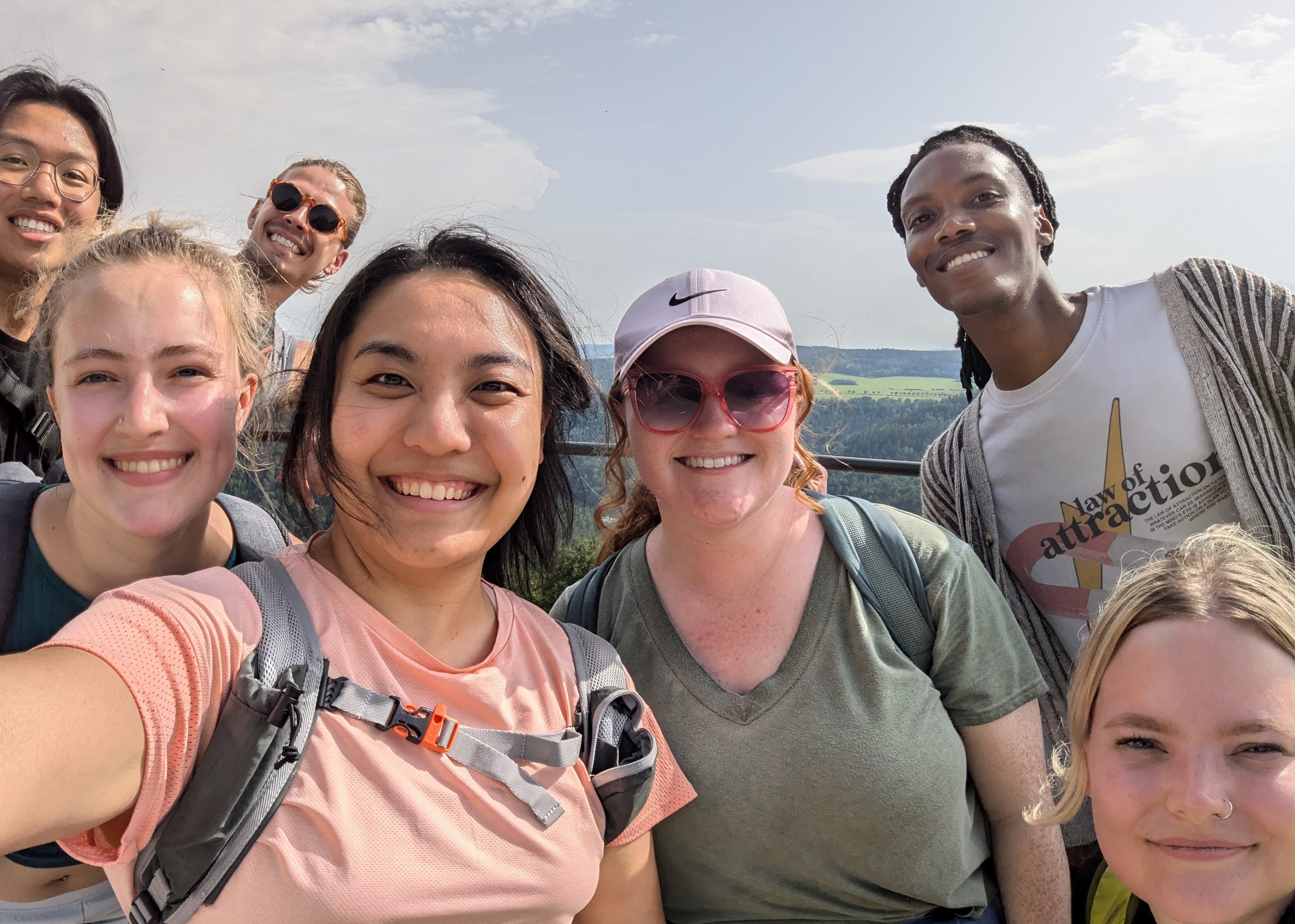On a Personal Mission, Chemistry Student Aims to Transform Dialysis Treatment

While in Dresden, Germany, Ph.D. student Maria Furukawa, center, took a break from her research with the Uhlmann Group to explore a historical fortress.
November 1 2024 | By Emily Sherman UNC Ph.D. Student in Chemistry
Maria Furukawa’s academic journey is driven by a personal mission to improve the lives of those undergoing dialysis, including a close family member. As a Ph.D. candidate in the department of chemistry at the UNC-Chapel Hill, Furukawa is developing liquid-crystal polymers that could transform the membranes used in hemodialysis, a life-saving treatment for patients with late-stage renal failure.
After earning her B.S. in chemistry from the Georgia Institute of Technology, Furukawa synthesized high-performance polymers in industry before she had a realization.
“I wanted a role where I could initiate ideas for projects,” said Furukawa, “and to do that, you need a Ph.D. I applied to UNC-Chapel Hill at a colleague’s recommendation and was really excited about the research. There were lots of good polymer options, and I thought project-wise, PI-wise, I’d be happy to work in any of those groups.”
As a member of the Dingemans Group in the UNC department of applied physical sciences, Furukawa synthesizes liquid-crystal polymers. These unique materials have properties of solids and liquids which make them attractive options for a variety of applications, but one in particular drew Furukawa’s interest: hemodialysis. A common treatment for late-stage renal failure, hemodialysis mimics the kidneys’ function by utilizing an external membrane to filter waste from the blood.
To create these membranes, Furukawa links together chemical building blocks, called monomers, to create chemical chains called polymers. By mixing different types of monomers into the polymer chain, Furukawa can control how much water and waste can pass through the polymer—two key considerations when designing dialysis membranes.
“It’s an area that needs improvement,” said Furukawa. “I have close family that are on dialysis which gives me more motivation to learn and hopefully make some contribution to the field to make an impact.”
She had the opportunity to do just that when she joined the Uhlmann Group in Dresden, Germany. Over the 10-week research experience, Furukawa investigated modifications to her polymer that could improve the membrane’s performance by preventing protein fouling. This phenomenon occurs when proteins adsorb onto the surface of the membrane, compromising its ability to effectively filter waste over time.
Creating the membrane required carefully layering three polymers onto a silicon wafer, each layer around 1,000 times thinner than a sheet of paper. A base layer anchored the membrane to the solid surface; the liquid-crystal polymer layer provided filtration, and the final polymer studied by the Uhlmann Group provided anti-protein fouling protection. The result? A new membrane that enabled high water permeability and decreased protein adsorption. By successfully demonstrating her liquid-crystal polymer could be modified with the anti-protein fouling polymer, Furukawa took a crucial step towards creating a longer-lasting hemodialysis membrane that could effectively remove waste from the blood.
“The fact that the project worked as simply as it did over less than 10 weeks was pretty exciting,” Furukawa said. “I thought it was a good combination of my interests and for a good purpose.”
Back in Chapel Hill, Furukawa focuses on replicating her results and synthesizing membranes of varying thicknesses. After optimizing the syntheses, she hopes to return to Dresden and perform more protein adsorption experiments.
“I learned something new that I could bring back to my group,” said Furukawa. “I feel like I am more confident in what I want to do and how to move forward. There are a lot of possibilities to explore.”

